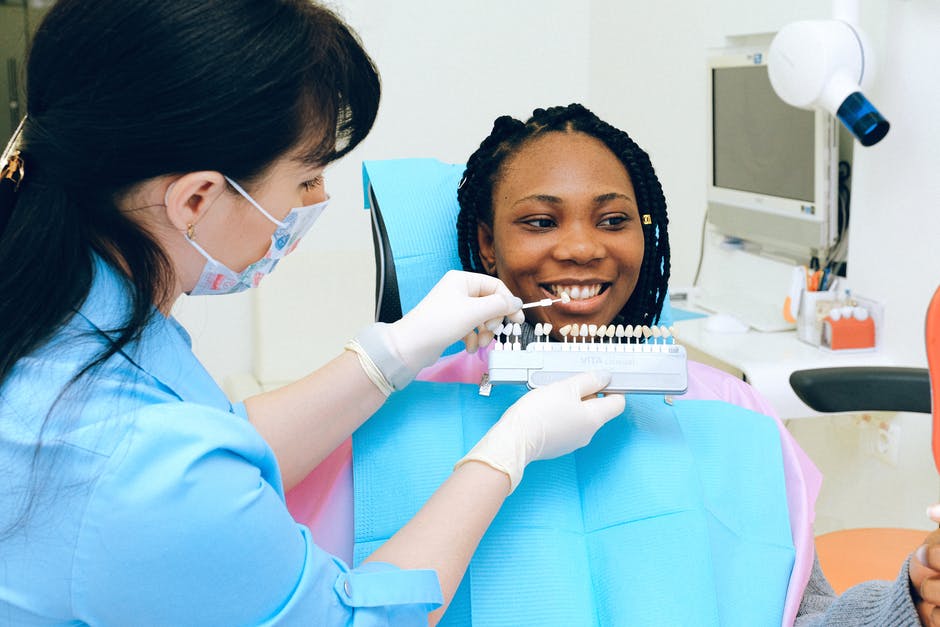
When it comes to anxiety and doctors, the dentist can be a scary time for even the smallest patients. It is also one of the most important doctor’s visits that you can make for your child.
20% of children between the ages of 5 and 11 have at least one untreated cavity in their mouth. This can be the beginning of a plethora of problems.
If you are the parent of a young child a dentist’s visit is very important. Here is a list of questions to ask your pediatric dentist to make your child’s dental care a little easier.
1. Will Sucking Their Thumb Hurt Their Teeth?
Many children have a habit of finding comfort in thumb sucking. As far back as in the womb, your child developed their reflexes this way.
However, as your child grows this habit may become more of a problem.
Past the age of three, thumb sucking may become a problem for your child. As much as sucking their thumb may be a comfort to them, it might also hurt their teeth. When a child sucks their thumb, the thumb begins to push against and move their teeth.
If you’re concerned about your child’s thumb-sucking, a dentist will be happy to help you devise a plan. This can be a difficult adjustment for your child.
As a dentist for kids, these are the types of things they specialize in. With years of experience, they should be able to help with a plan.
2. How Should I Teach My Child to Brush Their Teeth?
Brushing a child’s teeth can be a little trickier than that of an adult’s. Due to the compounds in toothpaste, young children should not use the same toothpaste as an adult.
Many brands have child-friendly toothpaste on the market.
If child-friendly toothpaste is still a problem, a low fluoride paste is recommended. This will help your little one learn the importance of brushing.
Yet, it will still protect their baby teeth from damage.
As your child’s dentist the best way to introduce a toothbrush to your young ones. Be prepared to question what type of toothbrush will be best and for a suggestion of toothpaste.
3. Flossing Is Important, but When?
Throughout our years of seeing the dentist, they try to ingrain us to floss daily. Flossing gets all of that stubborn plaque between teeth that toothbrushes don’t reach.
When it comes to your child, knowing when to teach them about floss can be a challenge. Kids don’t have the dexterity or comprehension when it comes to holding floss in many cases.
Asking your child’s dentist when the best time to begin flossing their teeth is can be helpful. Your pediatric dentist will be able to introduce helpful techniques. This will show your kids that flossing is important and can be fun as well.
4. Is My Child Drinking Too Much Juice?
One of the leading causes of cavities in children is juice. These sugary drinks that children often love can be harmful. The sugar hidden inside fruit drinks easily destroys their small teeth.
If you find that the dentist is seeing spots on your child’s teeth already it may be helpful to ask questions. Find out what is the best course of action.
Limiting their juice intake may be for the best. Your pediatric dentist may be able to suggest an alternative that will make your child happy.
5. When Should First Teeth Come Out?
Being concerned about your child’s baby teeth is completely normal. Your worry about them not falling out on time can be the same worry you had about them coming in.
By voicing your concerns to your child’s dentist, they can help you to understand the process. If your concerns are valid, a dentist can even run further x-rays.
All children lose their teeth at different times. It’s normal for a child to be a little sooner or even later than his peers.
6. When Should My Child Have Dental X-Rays?
Most of the time, a dentist for children will be the one to tell you when your child needs x-rays. This can be for a variety of reasons. Dentists often use x-rays to get the full scope of the inside of your child’s mouth.
With dental x-rays, the doctor can gauge the future of your child’s mouth. They can tell the dentist if there is enough room for incoming teeth. Or even if your little one’s mouth is overcrowded.
These x-rays are perfectly safe. There’s less radiation than your child would have in a typical x-ray for bones. If you’re still concerned, bring up your further questions to your dentist and they’ll be happy to help.
7. Should Loose Teeth Be Pulled?
This question is one that many dentists for kids see often. While for years we’ve seen strings tied to doorknobs and slammed for baby teeth, it is not recommended. Pulling out teeth can often damage sensitive nerves in your child’s mouth.
The best thing to do when your child has a loose tooth is to wiggle it back and forth. As most baby teeth do fall out naturally on their own, they do not need to be extracted with force.
If your child has a stubborn tooth that doesn’t seem to want to come loose, talk with your dentist. They may be able to do an x-ray to make sure that everything is healthy and normal in your child’s mouth.
Your Pediatric Dentist Has Plenty of Experience to Help
No matter what your question may be, your child’s pediatric dentist is here to support you. Make yourself a list before getting into the office so that you and your little one are both prepared.
Seeing the dentist can be a difficult visit for both parents and children. With the right dentist, their visit (and yours) can be a fun and easy experience.
Looking for the best pediatric dentist? Contact us for more information!
 (214) 453-2565
(214) 453-2565